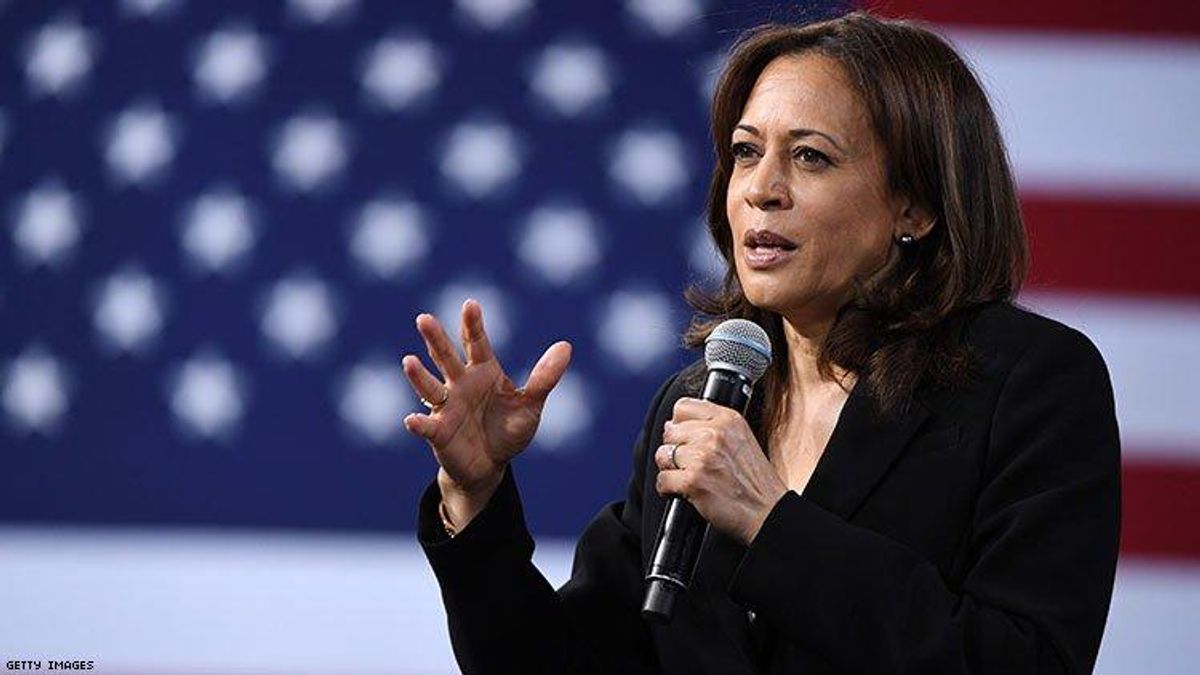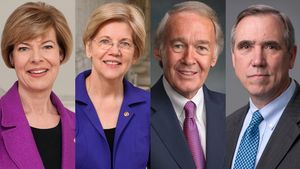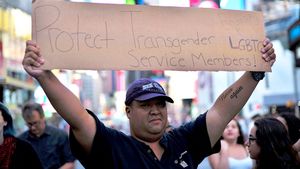U.S. Sen. Kamala Harris is introducing a bill to guarantee insurance coverage of drugs used in pre-exposure prophylaxis, a strategy to prevent transmission of HIV, she announced today.
“PrEP is a critical advancement in the fight against HIV that can finally provide peace of mind to Americans who live in the shadow of the HIV epidemic,” Harris, a California Democrat and presidential hopeful, said in a statement provided to The Advocate. “But for too many in our country, lack of insurance coverage and exorbitant costs have put PrEP out of reach — and that needs to change,” said Harris. “We must truly commit ourselves to HIV prevention by finally requiring every health insurance plan — public and private — to cover PrEP and all of the required tests and follow-up doctors’ visits. We must also provide the resources necessary to help people without insurance access PrEP. Nearly four decades since the beginning of the HIV/AIDS crisis that took so many lives and caused countless others to live in fear, we can and will stop the spread of this disease.”
Truvada, manufactured by Gilead Sciences, is the only drug approved so far by the Food and Drug Administration for use as PrEP; the FDA OK’d it for this use in 2012. If taken daily as directed, it reduces the risk of acquiring the virus from a sexual partner by more than 90 percent, especially when used in conjunction with condoms. But the drug has a high list price — more than $20,000 a year, although a cheaper, generic version is being developed. And users must be tested every three months to assure they remain uninfected, because if someone who is HIV-positive takes Truvada by itself, it can make the virus harder to treat. Truvada is used for HIV treatment, but only in combination with other drugs.
Harris’s PrEP Access and Coverage Act, if it becomes law, will guarantee insurance coverage for PrEP and create a grant program to fund uninsured patients’ access to it. A fact sheet from her office says the bill will:
• Require all public and private health insurance plans, including Medicare and Medicaid, to cover drugs used for PrEP—as well as all required tests and follow-up visits — without a copay, just as the Affordable Care Act requires insurance to cover contraception.
• Fund a grant program to assist states, territories, and tribal communities in facilitating access to PrEP for people who lack insurance. The bill authorizes grants to cover the cost of the drug, as well as all associated tests and follow-up visits.
• Prohibit companies selling life insurance, disability insurance, and long-term care insurance from denying coverage to customers who take PrEP or charging them higher premiums.
• Fund a public education campaign to reduce disparities in access to and use of PrEP by educating the public — particularly high-need communities in which PrEP is underutilized — about its safety and efficacy, and to combat stigma associated with using PrEP.
Many people at high risk of becoming infected with HIV have not taken advantage of PrEP, due primarily to the cost of Truvada and the stigma associated with using PrEP. “Of the more than 1 million Americans who could benefit from PrEP, only 7 percent — 78,360 individuals — filled prescriptions in 2016,” according to Harris’s fact sheet. “In particular, people of color and women have underutilized PrEP. In 2015, while approximately 500,000 Black individuals and 300,000 Latinx individuals could have potentially benefited from PrEP, only 7,000 Black individuals and 7,600 Latinx individuals received prescriptions.”
The U.S. Preventive Services Task Force, an independent panel of medical experts, recommended this month that people who are at a significant risk of acquiring HIV take PrEP. The recommendation means that private insurance companies will have to cover PrEP without cost-sharing for those individuals by 2021, as under the Affordable Care Act, insurers have to cover preventive services given an A or B rating by the panel; PrEP received an A rating. But Harris’s legislation goes further by requiring that all private and public insurance plans cover without a co-pay not only the drug itself but also all associated doctors’ visits, tests, and monitoring recommended by the U.S. Public Health Service.
Gilead has received much criticism recently for the price of Truvada and the fact that it has not shared profits with the federal government, which funded the research that discovered it was effective in preventing HIV infection and patented this use of the drug. The company has announced it will donate 2.4 million bottles of Truvada to 200,000 uninsured individuals each year for 11 years, but activists say this doesn’t go far enough. Gilead’s patent on Truvada expires in 2021, but it has reached a deal to allow Teva Pharmaceuticals to release a generic version September 30, 2020.












































































